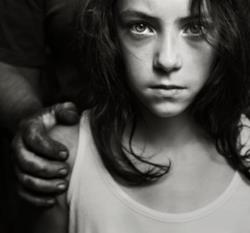Child Psychological Injury Lawyer
Children of any age can be very seriously affected by psychological trauma. When a child experiences a particularly upsetting event, such as being diagnosed with a life-threatening illness or witnessing a horrific car wreck, he or she may fall victim to emotional scars that can last a lifetime. When your child’s persistent emotional distress is caused by another party’s negligent or intentional conduct, you may be entitled to damages through legal action brought against the responsible individual.
Child psychological injury lawyer Jeffrey Killino understands the lasting and devastating effects that emotional trauma can have on a child and is experienced in bringing parties responsible for such injuries to justice. If your child has suffered a psychological injury as the result of someone’s negligence or intentional conduct, contact attorney Killino at 877-875-2927 to learn more about your legal options.
Sources of Psychological Trauma
Though psychological trauma can result from severe physical pain or terrifying health situations, it is not always caused by direct harm sustained by the victim of psychological trauma. Children may suffer emotional injuries by witnessing particularly terrible injuries or deaths sustained by others, for example. The potential sources of psychological trauma are widespread and include the following:
- Witnessing or being involved in a horrifying car accident
- Suffering assault, rape, abuse, or molestation
- Suffering birth trauma
- Undergoing a particularly humiliating or embarrassing experience
- Being diagnosed with a life-threatening or permanently disabling condition
- Witnessing the death of a close friend or family member
A child exposed to one of the situations listed above may suffer lasting psychological injuries. While not all cases warrant a personal injury claim, a great number of them do result from another party’s negligence or intentional conduct and may present the basis for a successful case. According to the American Academy of Pediatrics (AAP), psychological maltreatment of children constitutes the most common form of child abuse and neglect.
Legal Liability for Children’s Psychological Injuries
If your child suffers from persistent psychological or emotional trauma that is caused by another person’s deliberate act or negligence, you may be entitled to recover damages from the party responsible for your child’s injury under certain circumstances. Legal liability for such injuries may depend upon whether the child has sustained physical injuries as well as emotional or upon whether the child has experienced physical contact or the threat of physical contact. Most states follow the law of the Restatement (Second) of Torts with respect to actions brought to recover damages for a child’s psychological injuries.
Negligent Infliction of Emotional Distress

Under certain circumstances, recovery may be obtained for the psychological trauma suffered by a child in an action for the negligent infliction of emotional distress. More than negligence on the part of the defendant must usually be proved in order to recover damages in such an action, however. In some states, a plaintiff must also prove that he or she experienced some sort of physical contact or that the plaintiff was in danger of sustaining physical injury from the defendant (known as being in the “zone of danger”).
In most states, however, some physical manifestation of the emotional distress alleged must exist. Though some states have described this requirement as a requirement of “physical injury,” physical effects that have been considered to fulfill the requirement include loss of appetite, loss of weight, nightmares, extreme nervousness, and extreme irritability. Those states that require a plaintiff to have been in the zone of danger at the time the event leading to the emotional trauma occurred generally also require that the plaintiff have suffered such physical consequences as a result of the trauma.
Bystander Recovery for Emotional Distress Injuries
Recovery for a child’s emotional trauma caused by the observation of injury to another or a similarly alarming event may also be allowed in limited circumstances. The emotional distress suffered by the child must be extreme and the existence of and severity of the distress must be verifiable. The child’s trauma must also be shown to have been caused by the observation of a particularly traumatic experience such as the serious injury or death of an immediate family member. Finally, the child must have been in the “zone of danger,” or, in other words, exposed to the threat of physical injury from the act that resulted in injury or death to the child’s family member.
Intentional Infliction of Emotional Distress
If a child’s psychological injuries were sustained as a result of someone’s intentional conduct, the individual who engaged in the intentional conduct may be found liable for damages in an action for the intentional infliction of emotional distress. In order to recover damages in such an action, the plaintiff must prove that the defendant’s conduct was extreme and outrageous, that the plaintiff’s emotional distress is severe, and that the plaintiff’s severe emotional distress was caused by the defendant’s conduct.
Contact Us
The effects of a psychological injury have the potential to last a lifetime. If your child has suffered emotional distress as the result of another party’s negligence, contact child psychological injury lawyer Jeffrey Killino at 877-875-2927 for experienced and compassionate assistance with your case.




